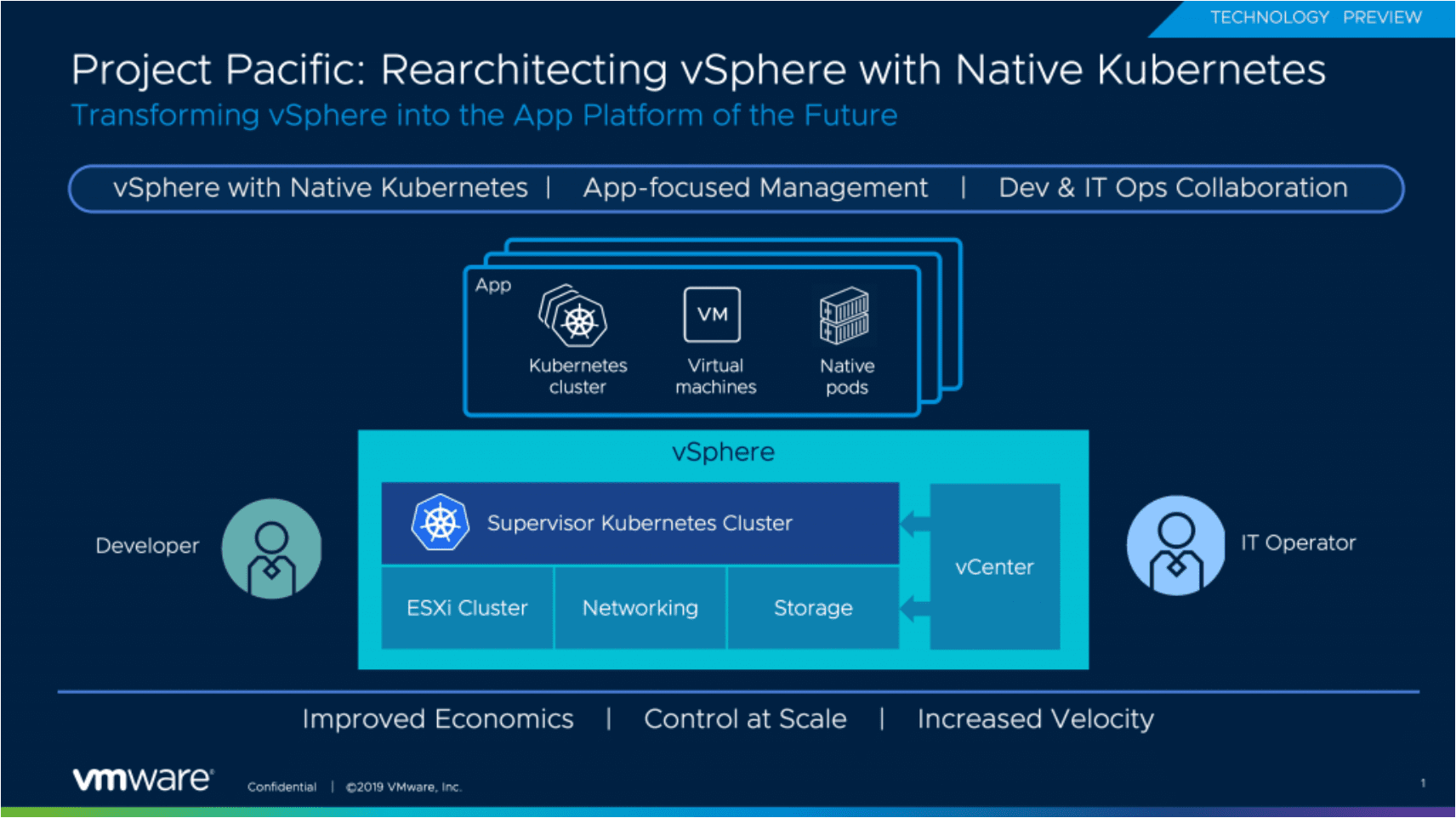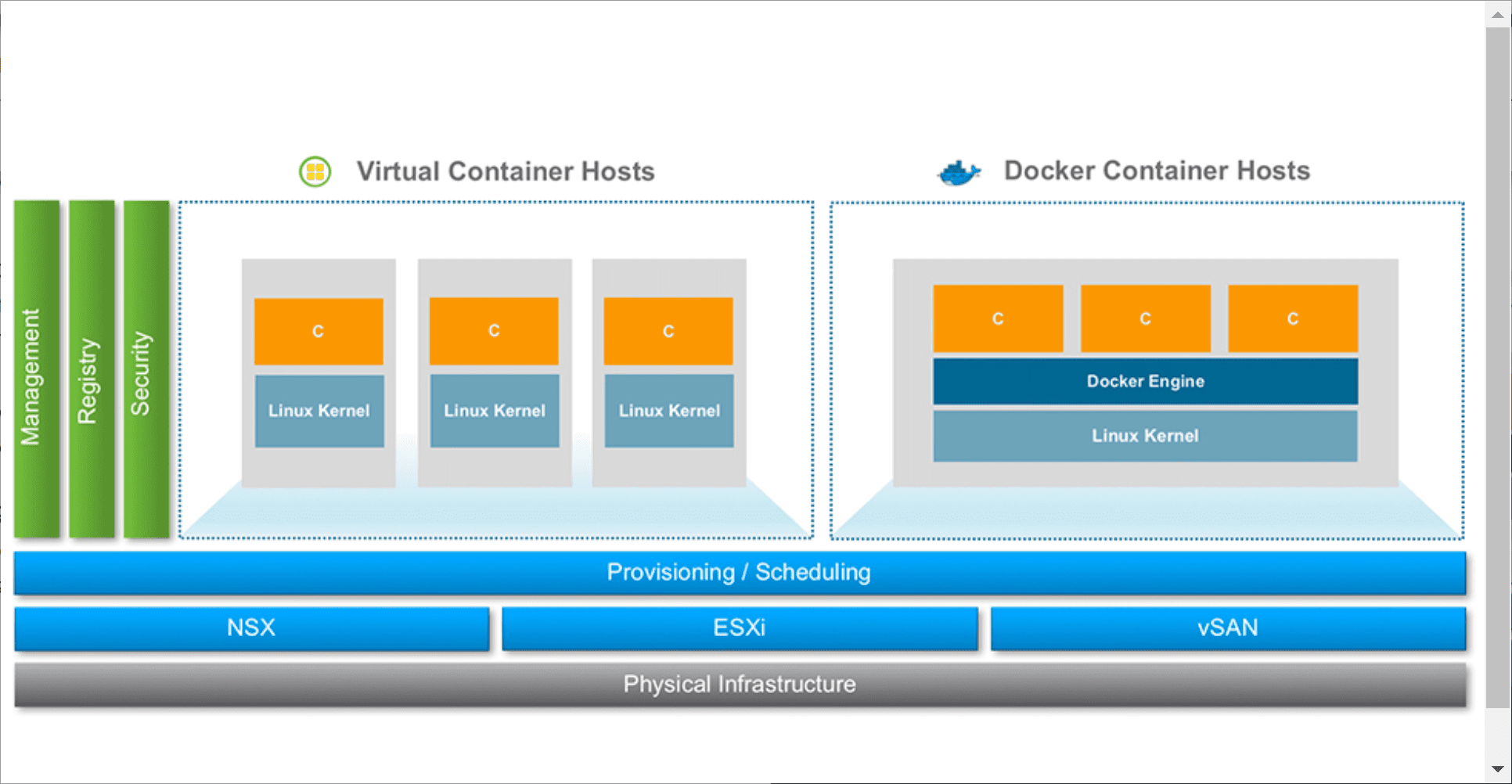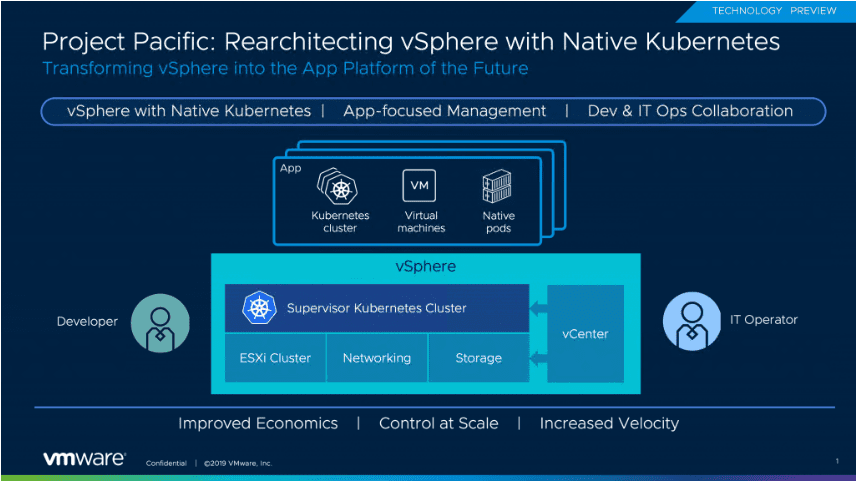VMware Project Pacific vs VIC vs PKS

Arguably, the biggest news coming out of VMworld 2019 in the US was Project Pacific. This is one of the greatest advancements in vSphere technology in over a decade. With the release of Project Pacific, VMware has embraced Kubernetes in a large way. It is to the point of rearchitecting vSphere so that Kubernetes is natively a part of the solution. Be sure you check out my post here called “What is VMware Project Pacific” to get a good overview of the technology. However, when it comes to running containers or more specifically Kubernetes inside of vSphere, there are already VMware solutions that already allow you to do these tasks. In this post, we will take a look at VMware Project Pacific vs VIC vs PKS to see how Project Pacific stacks up against the other two solutions from VMware and see how your business chooses between them.
VMware Project Pacific vs VIC vs PKS
With the introduction of VMware Project Pacific there are currently three different VMware solutions for implementing containers and specifically, Kubernetes. These are:
- vSphere Integrated Containers (VIC)
- VMware Pivotal Container (K for Kubernetes) Services
- Project Pacific
Check out my post here to get an overview of what VMware Project Pacific is:
Let’s take a closer look at comparing these solutions and see how they are related, and different in function and architecture than the newly introduced Project Pacific.
VMware Project Pacific vs VIC
Let’s first look and see how VMware Project Pacific compares with vSphere Integrated Containers.
VMware has certainly made mention that Project Pacific is related to the vSphere Integrated Containers project. They have taken all the lessons they have learned from these early container projects with vSphere as well as the software acquired with purchases such as Heptio and moved forward with Project Pacific.
When you look at Project Pacifc, unlike vSphere Integrated Containers (VIC), there is no need with Project Pacific to maintain the lifecycle of the pods individually as they are integrated within the ESXi hypervisor. One of the tremendous differences between Project Pacific and vSphere Integrated Containers is that Project Pacific uses the native Kubernetes API.
More distinctions come as we examine the differences with Project Pacific and vSphere Integrated Containers. With VIC, the focus was on simply running containers. With Project Pacific, since it implements the native Kubernetes API to manage Kubernetes clusters, VMs and ESXi native pods by managing the SDDC components as a whole, including compute, networking, and storage.
Architecturally, with VIC, each container is isolated to its own VM. With Project Pacific, Kubernetes Pods are contained in a single isolated VM. In this way, multiple containers can run together which makes the Kubernetes development environment easier to consume by developers.
VIC is a “bolt-on” component that allows vSphere to run containers. However, Project Pacific is not a bolt-on component for vSphere. Rather it is a new version of vSphere architecture that has Kubernetes embedded inside the ESXi hypervisor to support containers and there is no need to install a separate appliance or add-on to have access to this functionality.
VMware Project Pacific vs VMware PKS
Now, let’s take a look at the newer container offering outside of Project Pacific. This is the VMware Enterprise PKS offering with Pivotal Container Service.
VMware Project Pacific is an evolution of where VMware PKS is with the offering currently. VMware PKS is a more advanced and capable approach to running Kubernetes clusters in vSphere. However, again, it is an add-on to vSphere that allows customers to run Kubernetes inside their vSphere environment.
The end goal of the two solutions is the same – to build consistent implementations of Kubernetes across environments. For now, VMware is recommending the PKS solution as “the” solution for now. As you will note by VMware, the PKS solution will be superceded as the best solution for running Kubernetes by Project Pacific.
Organizations who are in need of deploying Kubernetes now would want to buy into VMware PKS as opposed to waiting on Project Pacific since the time and details of a generally available release are not available at this time.
Also, since both platforms are built upon the same common elements of the open source Kubernetes project, you will find they share the same common elements and will by extension have the same lifecycle management, etc.
VMware Project Pacific Kubernetes Implementations
The new VMware Project Pacific allows your business to take care of both Kubernetes as Infrastructure type clusters and Kubernetes as application component type clusters. VMware in visiting with customers has found there are certainly use cases for each type of Kubernetes implementation.
Project Pacific has been designed in such a way to to allow the best of both worlds on vSphere as the approaches to running Kubernetes are varied and different for every organization. The supervisor Kubernetes cluster provides a vSphere native way of running Kubernetes as Infrastructure. The Kubernetes cluster service on the Supervisor enables the Kubernetes as application component use cases and can be a variation of the Kubernetes as Infrastructure type where customers want to use a purely upstream compliant Kubernetes platform.
Wrapping Up
It is very interesting to take a look at VMware Project Pacific vs VIC vs PKS. It is easy to see the evolution of how VMware is implementing containers in general and then more specifically, Kubernetes. With Project Pacific coming down the pipelines, implementing Kubernetes in future vSphere releases is going to be easier than ever.
This will be without the need to have a bolt-on component, additional OVA appliance deployments or differing lifecycle management outside of VMware vSphere. This will greatly simplify and streamline the implementation of Kubernetes clusters for modern application development moving forward.
It is going to be an exciting time for you VMware customers moving forward with Kubernetes and microservices container architecture. No doubt you are looking at Kubernetes as the platform to run your container orchestration. From a VMware perspective there are many different options.
When will Project Pacific be released? Unknown a this point since it was shown as a Technology Preview at VMworld 2019 US. No doubt however, it will most likely be released in the next or following major release of vSphere.








